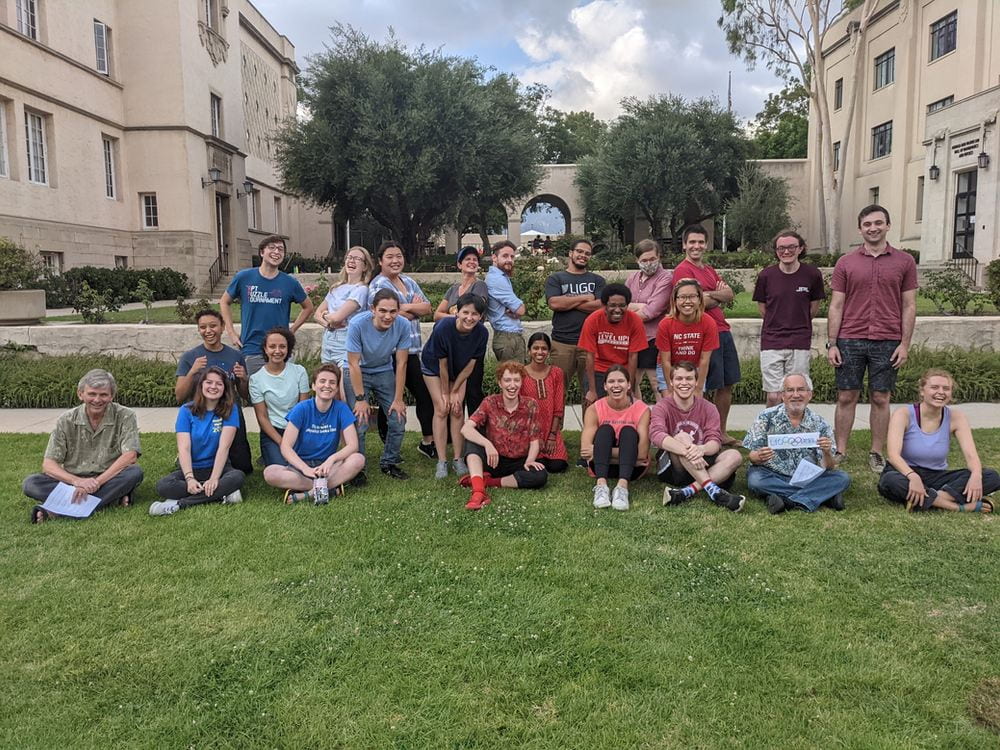As one of the postdocs who mentored the LIGO SURF program put it, there are five goals to an REU, which are, in order of importance:
- Safety and health
- Have fun
- I learn something
- My mentors learn something
- The project
A major aim of a summer research internship is to learn what it means to do research, not necessarily to complete all the goals of the project verbatim. In my case, there were a lot of unforeseen obstacles in the path to my original project. Between my research proposal that I submitted in May and the end of the summer, the scope and direction of my work shifted significantly. While this wasn’t what I’d originally expected, it was a great lesson about the nonlinearity of the research process. Some things may not go as anticipated, but that’s why it’s research: we’re finding out new things! And from the results we got, we developed new questions to interrogate that are taking us to interesting different ideas.
When reflecting on the second list item (have fun), the word that kept coming to mind was exploration. I explored literally and figuratively, discovering the Pasadena area and learning new scientific tools for this area of physics. Going to the beach, museums, and mountains with the other SURF students created lasting memories and friendships. I had fun, met wonderful people, and made connections that will persist long after this summer.

Group photo from the Ligolympics (go blue team!)
I also gained an appreciation for the time flexibility I had while doing research as opposed to a class schedule during the school year. During classes, there’s always something ahead that I need to work on; I’ve never had a weekend when I’ve been able to take a real break. With this internship, I was expected to take breaks on the weekends to be fresh for the week ahead—it was novel to go and do things without stressing about work I hadn’t done. Moreover, since much of my research involved running long algorithms, the results of which dictated my next steps, I learned how to structure my schedule around their expected finishing times (as “a run started tonight is better than one started tomorrow”!). This flexibility allowed me to read intriguing papers, pursue small side projects, and learn from the graduate students and postdocs during the workday.
From my albeit limited experience, I’ll offer the following thoughts and pieces of advice to people considering an REU.
- Ask, ask, ask! You won’t know enough about your area of research, and that’s okay. Ask the questions that you think are dumb early on, because it’s far better to understand than to be confused for weeks. Even if you get something, hearing it again from a different perspective can shine new light on the material.
- Just as a professor can make or break a class, your mentor can make or break your research experience. If you start to dislike it, ask yourself whether it’s because of the work or the context that you’re in. And if you’re loving it, ask yourself whether you’d enjoy it as much even if the people weren’t as great.
- Seek out feedback from as many people as you can as often as you can. Yes, asking can be embarrassing and getting criticism can suck, but it’s worth it.
- If you are trying to write your applications and have no idea where to begin, ask an upperclassman! I talked to several people who’d done physics and astronomy programs to get advice specific to that field. While there’s no universally perfect application—for my program, we were told it was about matching a person to a project, not choosing the 15 ‘best’ overall candidates—reading others’ statements and hearing their ideas is a great way to learn how to represent your interests and skills.
I completed all five items on the “REU goals” list to some extent, and completed the first three without a doubt. Looking forward, I still have runs to do, presentations to prepare for, and a final paper to write. I’m excited to continue working with my mentors and learning more every day about the world of gravitational-wave data analysis.
You must be logged in to post a comment.